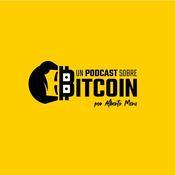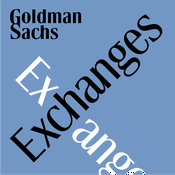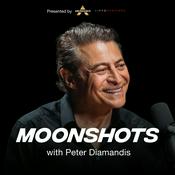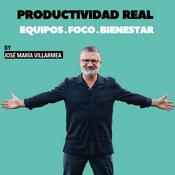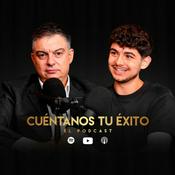419 episodios
Oral Argument Re-Listen: Berk v. Choy | Case No. 24-440 | Oral Argument Date: 10/6/25
04/2/2026 | 1 h 17 minOral Argument Re-Listen: Berk v. Choy | Case No. 24-440 | Oral Argument Date: 10/6/25
Link to Docket: Here
Episode Preview: Here
Background:
Question Presented: Whether a state law providing that a complaint must be dismissed unless it is accompanied by an expert affidavit may be applied in federal court.
Oral Advocates:
For Petitioner: Andrew T. Tutt, Washington, D.C.
For Respondent: Frederick R. Yarger, Denver, CO.
Holding: Delaware’s affidavit law does not apply in federal court.
Result: Reversed and remanded.
Voting Breakdown: 9-0. Justice Barrett wrote the majority opinion. Justice Jackson wrote an opinion concurring in the result.
Link to Opinion: Here.
Timestamps:
[00:00:00] Argument Intro
[00:00:33] Argument Begins
[00:00:39] Petitioner Opening Statement
[00:02:57] Petitioner Free for All Questions
[00:25:46] Petitioner Sequential Questions
[00:31:36] Respondent Opening Statement
[00:33:52] Respondent Free For All Questions
[00:59:19] Respondent Sequential Questions
[01:00:05] Petitioner Rebuttal- Coney Island Auto Parts, Inc. v. Burton | Case No. 24-808 | Oral Argument Date: 11/5/25 | Docket Link: Here
Overview
Today, the Supreme Court hears oral arguments in Coney Island Auto Parts versus Burton, a time trap tangle examining when void verdicts gain validity. Coney Island's bank account gets frozen for nearly $100,000 based on a 2015 Tennessee judgment they claim they never knew about. When Coney finally fights back seven years later, the Sixth Circuit dismisses the case, saying that you waited too long to challenge the judgment Coney didn’t even know about. "If something never existed in the first place, does waiting too long to challenge it make it real?
Question Presented: Whether Federal Rule of Civil Procedure 60(c)(1) imposes any time limit to set aside a void default judgment for lack of personal jurisdiction.
Oral Advocates:
For Petitioner (Coney): Daniel Ginzburg, Freehold, N.J.
For Respondent (Burton): Lisa S. Blatt, Washington, D.C.
Holding: Rule 60(c)(1)’s reasonable-time limit applies to a motion alleging that a judgment is void under Rule 60(b)(4).
Result: Affirmed.
Voting Breakdown: 9-0. Justice Alito wrote the majority opinion. Justice Sotomayor wrote an opinion concurring in the judgment.
Majority's Rationale: Rule 60(c)(1) clearly requires all Rule 60(b) motions within reasonable time, including void judgment challenges. Even void judgments face timing limits because no constitutional principle grants unlimited challenge time. Allowing indefinite challenges would create extreme consequences like ignoring appeal and certiorari deadlines.
Concurring Rationale: Rule 60's text and structure clearly require reasonable time limits for all motions. The majority unnecessarily addressed constitutional questions that no party raised or argued. Courts should stick to deciding actual disputes, not inventing constitutional theories.
Link to Opinion: Here.
Timestamps:
[00:00:00] Argument Preview
[00:00:58] Argument Begins
[00:01:07] Petitioner Opening Statement
[00:03:17] Petitioner Free for All Questions
[00:19:12] Petitioner Sequential Questions
[00:19:15] Respondent Opening Statement
[00:20:33] Respondent Free for All Questions
[00:34:10] Petitioner Rebuttal Oral Argument Re-Listen: Bost v. Illinois State Bd. of Elections | Case No. 24-568 | Oral Argument Date: 10/8/25
02/2/2026 | 1 h 43 minOral Argument Re-Listen: Bost v. Illinois State Bd. of Elections | Case No. 24-568 | Oral Argument Date: 10/8/25
Link to Docket: Here
Case Preview: https://scotus-oral-arguments.captivate.fm/episode/upcoming-oral-argument-bost-v-illinois-ballot-box-bout-when-can-candidates-challenge-election-rules/
Background: Federal law sets the first Tuesday after the first Monday in November as the federal Election Day. 2 U.S.C. §§ 1 and 7; and 3 U.S.C. § 1. Several states, including Illinois, have enacted state laws that allow ballots to be received and counted after Election Day. Petitioners contend these state laws are preempted under the Elections and Electors Clauses. Petitioners sued to enjoin Illinois' law allowing ballots to be received up to fourteen days after Election Day.
Question Presented: Whether Petitioners, as federal candidates, have pleaded sufficient factual allegations to show Article III standing to challenge state time, place, and manner regulations concerning their federal elections.
Oral Advocates:
For Petitioner: Paul D. Clement, Alexandria, Va.;
United States, as Amicus Curiae: Michael Talent, Assistant to the Solicitor General, Department of Justice, Washington, D.C.
For Respondent: Jane E. Notz, Solicitor General, Chicago, Ill.
Link to Opinion: Here.
Holding: As a candidate for office, Congressman Bost holds standing to challenge the laws that govern the counting of votes in his election.
Result: Reversed and remanded.
Voting Breakdown: 7-2. Chief Justice Roberts delivered the opinion of the Court in which Justices Alito, Thomas, Gorsuch, and Kavanaugh joined. Justice Barrett filed an opinion concurring in the judgment in which Justice Kagan joined. Justice Jackson filed a dissenting opinion in which Justice Sotomayor joined.- Overview:
This episode offers six critical insights from last week's opinions.
Six Pack Roadmap:
1. Deceptive Unanimity Statistics Court achieves 71% unanimity rate (versus 42% last year) by clearing uncontested low hanging fruit cases; rate will drop as complex constitutional questions arrive later this term.
2. Fractures Behind Unanimous Results: Two cases feature justices concurring only in judgment—agreeing with outcomes but rejecting majority reasoning; Jackson splits on procedural methodology in Berk v. Choy; Sotomayor objects to unnecessary constitutional analysis in Coney Island v. Burton.
3. Strategic Opinion Authorship Pattern: Each majority opinion authored by different justice; only Gorsuch and Thomas remain without majority opinions this term, suggesting strategic distribution of constitutional precedent-setting opportunities.
4. Thomas's Doctrinal Attack Signal: Thomas writes Ellingburg concurrence (joined by Gorsuch) targeting current Ex Post Facto jurisprudence, continuing his pattern of using separate opinions to undermine established legal frameworks.
5. Ex Post Facto Originalism: Thomas advocates abandoning modern twelve-factor balancing tests for 1798 Calder v. Bull approach; would subject civil penalties, administrative enforcement, and regulatory sanctions to constitutional scrutiny regardless of legislative labeling.
6. Emergency Docket Constitutional Chaos: Trump v. Cook oral arguments reveal dangers of rushed litigation creating inadequate factual records; Justice Alito highlights how time pressure forces courts into constitutional holdings rather than narrower statutory grounds.
Referenced Cases:
• Berk v. Choy - Unanimous decision on Delaware affidavit requirements conflicting with federal civil procedure rules; Jackson concurrence only in judgment preferring Rule 3 over Rule 8 analysis
• Coney Island v. Burton - Unanimous decision with Sotomayor concurrence only in judgment objecting to unnecessary due process constitutional analysis
• Ellingburg v. United States - Thomas concurrence (joined by Gorsuch) advocating originalist Ex Post Facto interpretation based on Calder v. Bull (1798)
• Trump v. Cook - Emergency docket case involving Federal Reserve governor removal; oral arguments criticized rushed litigation timeline creating inadequate factual development Oral Argument Takeaways | Roberts Hammers Second-Class Rights, Court Credits Pension Protections, Justices Float Process Fix
23/1/2026 | 19 minOverview
The High Court Report covers three major oral arguments from this past week, analyzing constitutional clashes over Second Amendment rights, pension plan calculations, and presidential removal powers. Each case presents fundamental questions about constitutional interpretation, federal authority, and the balance between individual rights and government power.
Takeaways:
Wolford v. Lopez
• Second Amendment treated as second-class right compared to First Amendment protections
• Historical evidence battle focuses on colonial anti-poaching laws and Black Codes versus modern concealed carry contexts
• Justices skeptical that 1771 hunting regulations justify modern permission slip requirements for constitutional rights
M&K Employee Solutions v. IAM
• Pension liability calculation dispute centers on timing of actuarial assumptions versus measurement dates
• Built-in statutory safeguards include professional ethics requirements and mandatory arbitration processes
• Court likely to rule that "as of" creates reference point rather than deadline for calculations
Trump v. Cook
• Presidential removal authority clashes with Federal Reserve independence principles
• "For cause" standard requires judicial review to prevent arbitrary executive actions
• Procedural defects provide potential narrow ruling path without resolving broader constitutional questions
Attribution
Episode analysis draws from Daniel Thompson's Substack piece "Litigating Originalism in Bruen: A Brief-Level Coding Study of History, Evidence, and Argument Form" available at https://legalytics.substack.com/p/litigating-originalism-in-bruen-a
Más podcasts de Economía y empresa
Podcasts a la moda de Economía y empresa
Acerca de The High Court Report
The High Court Report makes Supreme Court decisions accessible to everyone.
We deliver comprehensive SCOTUS coverage without the legal jargon or partisan spin—just clear analysis that explains how these cases affect your life, business, and community.
What you get: Case previews and breakdowns, raw oral argument audio, curated key exchanges, detailed opinion analysis, and expert commentary from a practicing attorney who's spent 12 years in courtrooms arguing the same types of cases the Supreme Court hears.
Why it works: Whether you need a focused 10-minute update or a deep constitutional dive, episodes are designed for busy professionals, engaged citizens, and anyone who wants to understand how the Court shapes America.
When we publish: 3-5 episodes weekly during the Court's October-June term, with summer coverage of emergency orders and retrospective analysis.
Growing archive: Oral arguments back to 2020 and expanding, so you can hear how landmark cases unfolded and track the Court's evolution.
Your direct line to understanding the Supreme Court—accessible, thorough, and grounded in real legal expertise.**
Sitio web del podcastEscucha The High Court Report, Podcast de Itnig: Historias de startups y muchos más podcasts de todo el mundo con la aplicación de radio.es
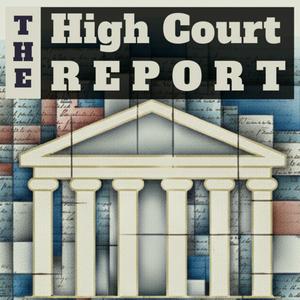
Descarga la app gratuita: radio.es
- Añadir radios y podcasts a favoritos
- Transmisión por Wi-Fi y Bluetooth
- Carplay & Android Auto compatible
- Muchas otras funciones de la app
Descarga la app gratuita: radio.es
- Añadir radios y podcasts a favoritos
- Transmisión por Wi-Fi y Bluetooth
- Carplay & Android Auto compatible
- Muchas otras funciones de la app


The High Court Report
Escanea el código,
Descarga la app,
Escucha.
Descarga la app,
Escucha.









